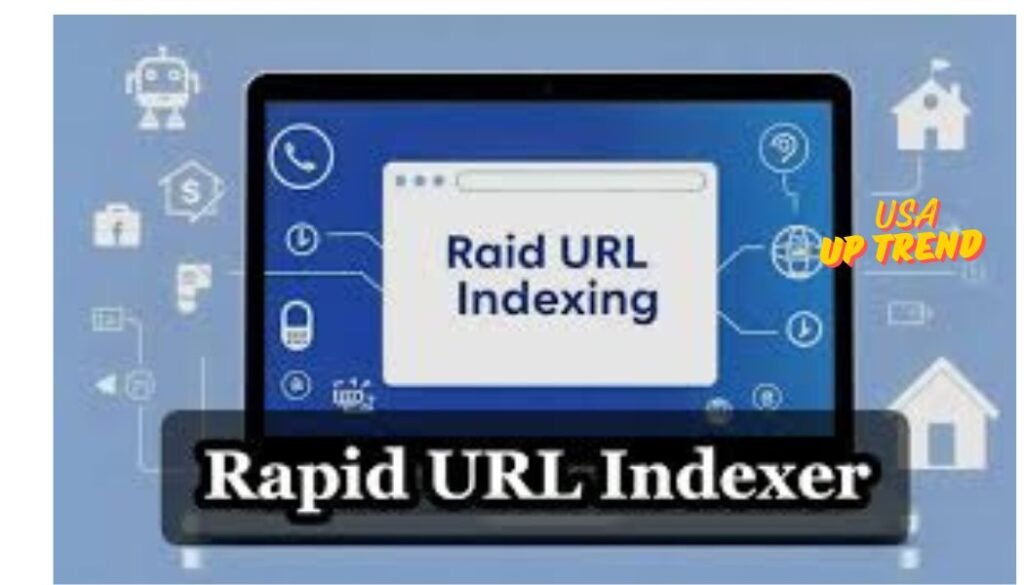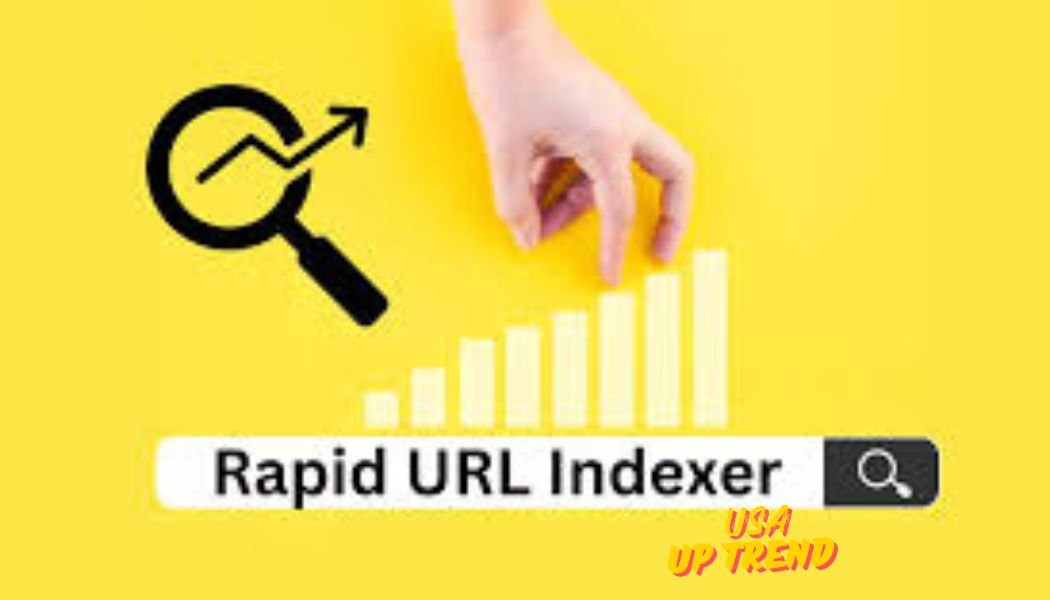A rapid URL indexer is an application tool that helps the SEO agencies get web pages index faster by search engines, like Google. How? This tool submits the URL directly to the search engine for fast indexing of web pages. This in turn enables websites to rank much faster in search results. The use of a SEO agency rapid URL indexer gives an edge to your website. Quicker indexing allows visibility of the website in the search engines much faster. This tool ensures that your content reaches the target audience without any delay.
SEO agencies employ different tools to ensure better ranking results. One such valuable tool is the rapid URL indexer. It accelerates a process so that the content ranks sooner in search results.
What Is SEO Agency Rapid URL Indexer?
A Seo Agency rapid URL indexer is essentially an application design to inform the search engine that there is a new URL or an update version of some webpage and thus it should be index in a quick turnaround. The world of SEO deals with getting any website’s pages index rapidly so that the webmaster can be sure that a given website’s content can appear on the web-based search results faster. Traditional indexing usually takes anywhere from a few days to a few weeks, but speedy URL indexers focus more on reducing this timeframe as much as possible.
How Does It Work?
A fast URL indexer works by pinging search engines and submitting URLs that need to be crawl and indexed. It will often use the APIs from search engines such as Google, which helps in quick crawling. This can give a competitive edge for SEO agencies when they are handling big sites or many clients since this tool will make sure the new content gets index nearly instantly.
Do Rapid URL Indexers Assist SEO Agencies?
Any SEO agency rapid URL indexer should need to have speedy URL indexing for those clients who have to get into the line in a jiffy and perhaps in highly competitive niches. When content indexes speedily, it would rank sooner, and therefore, this will automatically favor the business in hand outsmarting its competitors. In case of launching a new product or publishing anything which is urgent-communicative sort of time-bound news-is vital for an SEO agency to ensure that the pages of such clients are index and rank in the timely sequences, so the sooner visibility, engagement, and conversation come along.
Thus, fast URL indexers don’t just accelerate indexing but can also support the steady flow of content visibility to SEO agencies. Agencies submit new or updated URLs for search engines to include on the clients’ websites. As such, for such websites that update with new content from time to time, such as a blog or an e-commerce store, this is an operation that continuously refreshes the web pages to ensure that it remains relevant to the search results.
Increased Productivity
This would be one of the prime advantages for SEO agencies since they will no longer have to manually submit their URLs to search engines. An automatic process would save precious time that would otherwise be spent on rather more essential activity such as developing quality content and backlinks, which are crucial in improving ranking and overall SEO performance.
Using a URL indexer that accelerates its indexing process with the least possible time waste on repetitive steps, the operations of SEO agencies can always be improve, and workflow streamlined. Automation essentially helps to free up more resources of SEO specialists for strategic work in accordance with long-term result-orientated activities such as keyword research, competition analysis, user experience.
Quicker Results
In the world of SEO, time really is money. The faster any page is index, the faster it will start to rank for relevant keywords. Rapid URL indexers really help agencies deliver quicker results to their clients, making them more satisfied and keeping them longer.
What is Google Indexing, and Where Does Rapid URL Indexer Stand?
Google indexing is the process by which Google scans a webpage and catalogs its information, making it searchable in response to user queries. This process ensures that relevant details from a webpage are organized and displayed when someone conducts a search, helping users find the information they need more efficiently. Without proper indexing, web content may not appear in search results, limiting its visibility.
A rapid URL indexer speeds up this indexing process, ensuring that newly published material becomes visible to users much faster. By accelerating how quickly search engines like Google index a page, a rapid URL indexer helps businesses and content creators reach their audience sooner, boosting the chances of appearing in search results right after content is released. This is especially beneficial for time-sensitive content, ensuring it’s discoverable when it matters most.
How Google Indexing Works
Google indexing is the way by which Google scans webpage contents and stores them in its database in anticipation of retrieval at appropriate search queries. This process is important because it dictates how the webpage will appear in search engines and at what time, hence easy availability to users of the most relevant information according to their search words. Without indexing, quality content may not appear in search results, meaning that it has lesser chances of getting noticed.

The quick indexer for a URL speeds up the rate at which this is done and ensures that fresh content is indexed sooner than before to finders. The business or company doing SEO can use a rapid URL indexer to ensure its pages are identified fast by the search engine to get faster onto the actual search result. This is particularly important for content that calls for immediate attention, such as timely blog posts or product launches/new breaking news, which makes the material reach the target audience all the more promptly.

How Rapid URL Indexer Helps
A fast URL indexer often uploads the straight URLs received into Google to index to increase the indexing speed by evading regular crawling, at times sometimes as long as days or even weeks to have it indexed, particularly effective for launches of new sites or even publishing of sometimes time sensitive material.
What is Google Indexing, and Where Does Rapid URL Indexer Stand?
Google indexing is the process by which Google reads the content on a webpage and organizes the details to be found in the search results. The system helps Google identify information relevant to a user’s search query so that the most apt content can be display in response to that query. If a webpage is not index, then the details of its content may not appear in search results, limiting its visibility to other potential visitors.
In addition, a high-speed URL indexer enhances this process by making it go faster concerning the rate of indexation of new content. Hence, when published, the page will, therefore, appear faster to the searchers who happen to be its target audience, searching for information that may relate to what appears on that page. Their application benefits businesses and other content creators directly because exposure to material in search results needs to happen immediately so that it reaches the appropriate audience with the least delay possible.
How Google Indexing Works
Google has spiders or crawlers that scan the internet for new or modified content. The content is then index and store in Google’s massive database. Crawling and indexing are two separate activities. Crawling only looks for the content, whereas indexing involves processing and categorizing it for search results.
How Rapid URL Indexer Helps
A fast indexer of a URL will often upload straight URLs received into Google to index to speed index up by avoiding regular crawling, sometimes sometimes as long as days or even weeks to have it indexed, especially great for new site launches or even publishing of sometimes time-sensitive material.
Comparison of Traditional vs Rapid URL Indexing
| Aspect | Traditional Indexing | Rapid URL Indexing |
| Indexing Speed | Several days to weeks | A few hours to a day |
| Manual Submission | Required (e.g., through Google Search Console) | Automated through rapid indexer |
| Best for | Small, less time-sensitive websites | Large, time-sensitive websites |
| Search Engine Visibility Speed | Delayed | Immediate |
How SEO Agencies May Benefit from Rapid URL Indexers
Rapid URL indexing could easily be integrate into the workflow of SEO agencies to optimize their efficiency in conducting SEO strategies. Using such tools guarantees quick and accurate indexing of new content so it may be includ in the list of search result much earlier. This obviously accelerates its production not only for small, local companies but for large companies as well since a fast indexed status leads to quicker visibility and therefore more traffic, and better search rankings.
Rapid URL indexers also increase the rate of accuracy for SEO efforts by informing the search engines about new or modified content within the shortest time possible. This is very important to any company, regardless of its size, since the quicker the content is index, the sooner it will reach the target audience. Whichever the form-like small local provision, all the way to international bigger companies, rapid URL indexers help agencies streamline their business operations while producing better outcomes for their clients.
Make Indexing Easier
By automating the submission process of URLs, an SEO agency is able to save time from doing redundant work and be able to direct its valuable resources to other areas of strategic SEO work like keyword research, content creation, and backlink building.
Increasing Client Results
Most clients expect to get quick results from the SEO campaign through their agencies. A rapid URL indexer will enable agencies to deliver results in a very short period because web pages that have been index appear in search engines shortly after publishing.
Limitations and Challenges of Rapid URL Indexers
While fast URL indexers offer several advantages, there are a few limitations also. The tools, though capable of accelerating the process, cannot provide results instantly all the time. Though still search engines like Google are controlling the final index, and there is going to be some delay irrespective of the speed at which an indexer can go – due to quality content on the website, or perhaps updates in the algorithm of the search engine. Hence, it needs to know the problems so that the tool can help SEO agencies in working with and adjusting to the clients’ expectations appropriately.
Due to such knowledge of limitations, the appropriate adjustments in approach get done. In light of a prior knowledge about probable hurdles- varying indexing time, transient technical issues- an agency would be better equip to plan and optimize their workflows. It ensures that the speedy URL indexers stay within the overarching views of any SEO toolkit. They remain an essential part to improve the speed as well as the accuracy of indexing and offer ways to overcome the hurdles smartly.
Temporary Indexing
In some cases, the rapid URL indexing can bring temporary indexing that may crawl and index it very fast but then removes it from the index after some time as determined to be of no use or of bad quality by search engines. That is why proper content is need though you may use a rapid indexer.
Overuse Creates Other Problems
Using a rapid URL indexer too frequently or for too large a number of URLs in short steps will also provoke some red flags from search engines, and may also lead to throttling or penalties if the activity is label suspicious.
Table 2: Pros and Cons of Using a Rapid URL Indexer for SEO Agencies
| Pros | Cons |
| Faster indexing times for new or updated content | Potential for temporary indexing or removal |
| Increased efficiency in SEO workflows | Overuse may lead to penalties from search engines |
| Improved client satisfaction with faster results | Not a substitute for high-quality content |
Conclusion
In conclusioSEO agency rapid URL indexer are a powerful tool for SEO agencies, e-commerce businesses, and content marketers who need to ensure their content is index and visible as quickly as possible. These tools provide clear benefits in terms of efficiency and faster results, but they should be used wisely and in conjunction with other SEO best practices. While they can speed up the indexing process, they are not a replacement for quality content and a well-rounded SEO strategy.
By understanding the potential advantages and limitations of rapid URL indexers, SEO agencies can better serve their clients, deliver quicker results, and stay competitive in the fast-paced world of digital marketing.
Read more about Technology at USA UP TREND




